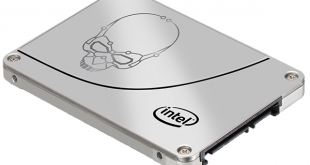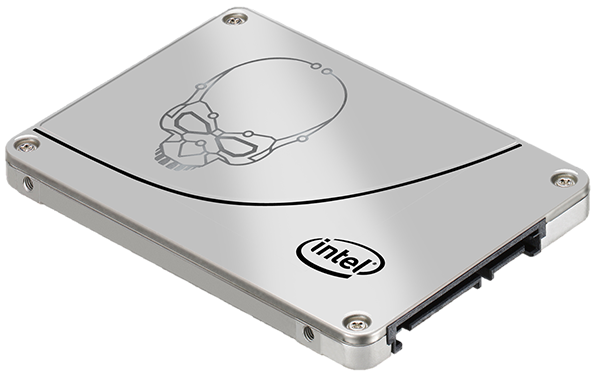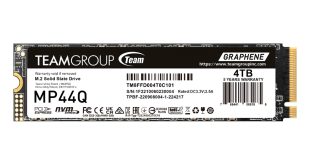
Today we are looking at the latest Solid State Drive from Intel, the 730. This 2.5 inch drive uses a specially qualified 3rd generation Intel controller, the same 20nm NAND flash memory that was used in the S3500, alongside an optimised firmware. Intel have overclocked the controller by 50% and the NAND bus has been tweaked by a further 20%. How does it stack up in 2014?

Intel have released the 730 in 240GB and 480GB capacities and there is quite a difference in rated write performance between the two units.
Sustained Sequential Reads / Writes
240GB: up to 550 / 270 MB/s
480GB: up to 550 / 470 MB/s
The 240GB drive is markedly slower than the larger 480GB drive, with write speeds dropping from a rated 470 MB/s to 270 MB/s. With the 2014 SSD market being so competitive, this slow write speed does stand out like a sore thumb as it is very similar to write speeds we documented with last generation SATA 2 Sandforce drives. Thankfully both drives offer the same read speeds – up to 550 MB/s … close to the bandwidth limitations of the SATA 3 interface.
730 SSD 4K IOPS performance is rated at 86,000 read and 56,000 write for the 240GB model and 89,000 read and 74,000 write for the 480GB model. Again the 240GB unit suffers a noticeable performance penalty.
The new 730 Solid State Drive is based on the Intel PC29AS21CA0 controller which is found inside the Intel DC S3500 and S3700 products. Both of these drives are designed with the server market in mind, delivering consistent write performance. The higher cost S3700 has been designed specifically to deal with extremely taxing write based workloads. It is able to deliver 10 full drive writes every day, for five years.
The 730 is based on these drives, but as a consumer model it is using 20nm ONFI flash memory. The controller has been overclocked from the 400mhz speeds in the server models, to a final clock speed of 600mhz. NAND bus speeds have also been increased from 83mhz to 100mhz.
The 730 is also protected with an impressive five year warranty – covering 70GB of data transfer each day across the time frame. If you are moving a lot of data around every day and demand the highest levels of reliability, then this is a very strong selling point.
Intel claim that the performance in RAID 0 has been optimised with almost perfect scaling. As Intel only sent us a single drive for this review today, we are sadly unable to test these claims.
 KitGuru KitGuru.net – Tech News | Hardware News | Hardware Reviews | IOS | Mobile | Gaming | Graphics Cards
KitGuru KitGuru.net – Tech News | Hardware News | Hardware Reviews | IOS | Mobile | Gaming | Graphics Cards


